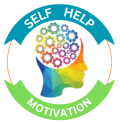Personal development is a practice that has been around for decades, but how does personal development relate to psychology?
Table of Contents

Hi. Ian here and welcome to this article exploring the relationship between personal development and psychology.
If you’re reading this, I’m going to assume that you’re interested in improving yourself somehow.
Maybe you want to be more successful at work, build stronger relationships, or simply live a more fulfilling life.
Whatever your goals may be, personal development can help you achieve them. But what exactly is personal development, and how does it relate to psychology?
What is personal development?
Personal development is the process of improving oneself through a variety of activities, such as setting goals, developing new skills, and working on personal relationships. It’s a lifelong journey that can help you reach your full potential.
How does personal development relate to psychology?
Psychology is the scientific study of human behaviour and mental processes. It can provide insights into how we think, feel, and act.
This knowledge can be beneficial for personal development. For example, understanding how our brains work can help us create more effective goals and strategies for change.
Additionally, psychology can teach us about the different factors that influence our behavior, such as our upbringing, personality, and environment. This awareness can help us identify and address any challenges that may be holding us back.
Here are some specific examples of how personal development and psychology are related:
- Self-awareness: Personal development is all about getting to know yourself better. This includes understanding your strengths, weaknesses, values, and goals. Psychology can teach you about the different aspects of self-awareness and how to develop it.
- Goal setting: One of the most important aspects of personal development is setting goals. Psychology can help you understand the different types of goals, how to set effective goals, and how to overcome challenges along the way.
- Behavior change: If you want to change your behavior, you need to understand why you behave the way you do. Psychology can teach you about the different factors that influence behavior and how to make lasting changes.
- Emotional regulation: Emotional regulation is the ability to manage your emotions healthily. Psychology can teach you about the different aspects of emotional regulation and how to develop these skills.
- Relationships: Personal development often involves improving your relationships with others. Psychology can teach you about the different types of relationships and how to build and maintain healthy relationships.
Personal development and psychology are closely related. Psychology can provide us with the insights and knowledge we need to achieve our personal development goals.
If you’re interested in learning more about how psychology can help you improve your life, I encourage you to do some research on the topic. There are many great books, articles, and websites available.
Here are a few resources to get you started:
- Positive Psychology by Martin Seligman
- Mindset by Carol Dweck
- The Happiness Advantage by Shawn Achor
- The 7 Habits of Highly Effective People by Stephen R. Covey
- Psychology Today
Thanks for reading!
Ian
Personal development is the process of growing and developing as a person. It can involve many different things, such as improving your self-awareness, learning new skills, setting goals, and overcoming challenges. Psychology is the study of the mind and behavior. It can help us to understand our thoughts, feelings, and motivations, and to make positive changes in our lives.
Personal development and psychology are closely related fields. Psychology can provide us with the tools and knowledge we need to make positive changes in our lives, and personal development can help us put those tools and knowledge into practice.
There are many different ways to engage in personal development. Some popular methods include reading self-help books, attending workshops or seminars, and working with a personal coach. There is no one-size-fits-all approach to personal development, and the best approach for you will depend on your individual needs and goals.
Personal development and psychology are two closely related fields that can help us to understand ourselves better and to improve our lives. Personal development is the process of growing and developing as a person, while psychology is the study of the mind and behavior. Both fields can help us to understand our thoughts, feelings, and behaviors, and to make positive changes in our lives.
One of the key areas where personal development and psychology intersect is in the area of self-awareness. Self-awareness is the ability to understand our thoughts, feelings, and motivations.
It is essential for personal development because it allows us to identify our strengths and weaknesses, and to set realistic goals for ourselves. Psychology can help us to develop self-awareness by providing us with tools and techniques for understanding our minds.
Another area where personal development and psychology intersect is in the area of goal setting. Goal setting is the process of identifying what we want to achieve in life, and then developing a plan to achieve those goals. Psychology can help us to set goals by providing us with strategies for overcoming obstacles and staying motivated. Personal development can help us achieve our goals by providing us with the tools and resources we need to succeed.
Personal development and psychology are two powerful tools that can help us to improve our lives. By combining the insights of these two fields, we can gain a deeper understanding of ourselves and make positive changes that will benefit us in all areas of our lives.
Here are some specific examples of how personal development and psychology can be used to improve our lives:
- Personal development can help us to overcome negative thoughts and behaviors. For example, if we have a habit of procrastination, personal development can help us to identify the root cause of this behavior and to develop strategies for overcoming it.
- Personal development can help us to build positive relationships. For example, if we have difficulty communicating with others, personal development can help us to improve our communication skills and to build stronger relationships with the people in our lives.
- Personal development can help us to achieve our goals. For example, if we want to start our own business, personal development can help us to develop the skills and knowledge we need to be successful.
Personal development and psychology are two powerful tools that can help us to improve our lives. By combining the insights of these two fields, we can gain a deeper understanding of ourselves and make positive changes that will benefit us in all areas of our lives.
Lately, there has been an influx of new books, courses, and seminars geared toward helping people develop themselves. With more information available to us than ever before some are wondering whether personal development really works or if it’s just another way for some people to make money off others’ insecurities.
While there are certainly some people out there who will look to take advantage of you this doesn’t mean that all personal development methods should be written off as ineffective. There are many ways by which you can grow yourself personally without getting taken advantage of.
One example is using the principles of psychology which have been studied scientifically for years now and have shown results time and again.
Personal development is important because it helps us step outside our comfort zone and grow as people, which can sometimes mean taking risks or doing things we are not comfortable with. By developing yourself in this way you will find yourself becoming more confident in your abilities and happier than ever before.
This article highlights the importance of personal development by exploring just how psychology relates to it.
What Is The Relationship Between Personal Development And Psychology
The relationship between personal development and psychology is that personal development is the pursuit of optimal psychological health. Personal development interventions are aimed at increasing mental well-being, positive affect, hope, self-efficacy, resilience, and life satisfaction.
Psychology research has shown that these outcomes are associated with various measures of psychological well-being such as mental health symptomatology, quality of life, and happiness.
There is a strong relationship between personal development and psychology. Personal development is the process of growing and developing as a person, while psychology is the study of the mind and behavior.
Both fields can help us to understand ourselves better and can be used to improve our lives. Here we will explore some of the ways that personal development and psychology intersect and how they can each benefit us.
Theories Of Self Development
Psychology is the study of human behavior, but it can also be used to understand personal development. Each person has their own unique personality and several theories explain why people act the way they do.
One theory in particular claims that our behaviors are controlled by how we perceive ourselves. This theory helps us better understand why some people act out against society while others conform to social norms or find success by following them.
Theories of self-development state that humans will develop into what they believe about themselves through a process called “self-fulfilling prophecy.” For this to happen, the individual must have a strong belief system and behave according to those beliefs which then causes new thoughts about oneself that become our way of being.
Personal Development In Psychology
Personal development is a very important aspect of psychology because it helps people become the best version of themselves. It can help people with their personal and professional lives, as well as their general well-being. Personal development has been around for centuries, but only recently have psychologists begun studying its effects on people so closely.
How Does Personal Development Relate To Psychology?
Personal development is a complex topic that relates to psychology in many ways. The relationship between personal development and psychology can be explained by the fact that they both have different perspectives on humans, their behavior, and what makes them tick.
Personal Development focuses more on the individual’s growth while Psychology looks at mental health issues through observation. Both are critical in understanding human behavior, but it’s necessary to know which one you’re looking for when researching topics of interest.

How Does The Age And Stage Of Development Of A Person Influence His Or Her Personal Development?
According to studies, a person’s age and stage of development are major factors in determining his or her personality. A person who is between the ages of six and twelve years old will have an adolescent mentality. Similarly, a person who is between thirteen and nineteen years old will also have an adolescent mentality.
On the other hand, if you are twenty-one to thirty-nine years old then you will be considered mature whereas someone forty to fifty-nine years old would be considered middle-aged. Finally, sixty-year-olds are classified as elderly people while those sixty-one to eighty-four-year-olds fall under the “old age” category, although the designation for older people is beginning to change rapidly due to improved nutrition and mental stimuli.
Does Psychology Serve As A Foundation Of Personal Development?
The field of psychology has always been at the forefront when it comes to studying human behavior. It is no wonder that personal development experts have taken cues from this discipline for their teachings. There are many overlaps between these two fields because they study the same thing, people.
Psychology focuses more on why humans think and act a certain way while personal development focuses more on how to use that knowledge to improve one’s life. These two fields work hand in hand together with psychology providing the foundation for what can be done by personal development practitioners.
Psychological Factors That Influence Personality Development
Personality is the way we react to and interact with our environments. It’s often made up of a bunch of different traits like introversion, extroversion, openness to new experiences, neuroticism, agreeableness, and conscientiousness.
One thing that can influence personality development is psychology; many psychological factors influence personality development such as attachment styles and cognitive biases.

What is the difference between introversion vs extroversion when it comes to personality traits?
Introversion and extroversion are two different personality types. They both have their strengths and weaknesses, but the key difference is that introverts recharge energy by spending time alone while extroverts need to be around people to feel energized. It’s important to know which type of personality you are so that you can utilize your personality type to your best advantage.
Do you identify with either of the following personality types?
Introvert
“Introverts are typically seen as shy, anti-social people who don’t enjoy being around others. Although this is not always the case, introverted people do tend to feel more exhausted in social situations than extroverts. This exhaustion can leave introverts feeling isolated and alone.”
One way that introverts can make themselves feel better in social situations is by recognizing their strengths. Introverted individuals have an innate ability to listen well and think deeply about what they hear before responding which makes for good listening skills.”
Another way that introverts can make themselves feel better in social situations is by allowing themselves to be present while also stepping back from the conversation at times.
Extrovert
Extroverts are the life of the party. They are always out and about, making friends, chatting with people they know, or meeting new ones. But it doesn’t take much for an extrovert to feel down in the dumps. Whether it’s a bad day at work or just feeling exhausted after running around all day, there are ways that extroverts can make themselves feel better during their low moments.
It is not a secret that extroverts have more energy, enjoy being in the spotlight, and are often seen as leaders. But what happens when extroverts feel down? Extroverts may find themselves feeling low due to their social nature – they might be craving attention or need to recharge their batteries.
There are many ways an extrovert can make themselves feel better during low moments, but here are some general tips:
- Get outside
- Talk with friends
- Go on adventures
- Read
- Exercise
- Meditate
- Journal
- Take care of yourself
- Give back
Extroverts should remember that it’s okay to slow down sometimes!
FAQ
How are personal development and mental health related?
Personal development and mental health are related; good mental health is necessary for personal development.
4 Ways to Use Psychology to Improve Your Professional Life
1. Social proof. Social proof is the psychological phenomenon that humans behave based on how others behave.
2. Consistency. It is a scientific fact that humans love commitment and consistency.
3. Reciprocation.
4. Building relationships.
How can the study of psychology help you to become a developed individual?
Studying psychology equips students with skills that can be used in their daily lives.
Final Words
Personal development and psychology are closely related. Personal development is the process of improving oneself through various means such as education, training, and self-reflection. Psychology, on the other hand, is the scientific study of the human mind and behavior. Personal development can be seen as a practical application of psychological theories and concepts.
Psychology provides a framework for understanding human behavior and the factors that influence it. By understanding the underlying psychological principles, individuals can identify their strengths and weaknesses and work towards personal growth and development. For example, cognitive-behavioral therapy (CBT) is a popular form of therapy that helps individuals identify and change negative thought patterns that may be holding them back.
Personal development also draws upon other psychological concepts such as motivation, self-esteem, and resilience. By developing these skills, individuals can improve their overall well-being and achieve their goals.
Psychology is an immensely complex subject. It deals with every aspect of human behavior and personal development, which can make it hard to know where to start if you’re looking for information about yourself or the people in your life.
Fortunately, several theories explain why we act the way we do. One theory in particular claims that our behaviors are controlled by how we perceive ourselves (also known as self-image). Understanding this concept will help us better understand why some people act out against society while others conform their thoughts and actions accordingly.
This knowledge can be used to create more fulfilling relationships both personally and professionally because it provides insight into what motivates each person on a deeper level than before.
Wishing you Health, Wealth, and Happiness
